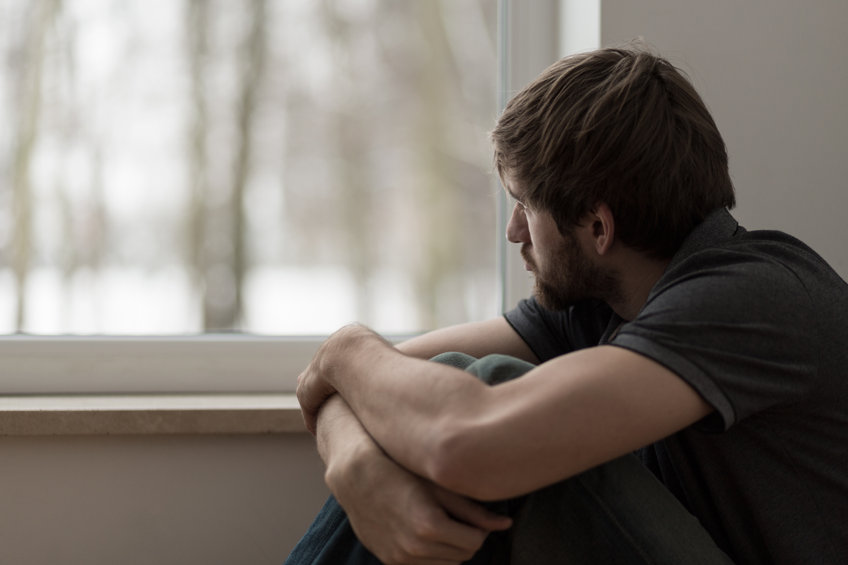Depression can manifest in a myriad of ways, including disordered eating habits. Treating eating disorders and depression simultaneously when they co-occur is vital. Depression treatment in Dallas may help you or someone you love climb out of the darkness and enjoy life again. At Eating Disorder Solutions, we focus on helping you learn more about how these two conditions intersect and how to overcome them, so you can go back to living your best life.

Get Help Now
Eating disorders are treatable. Call us now to begin your journey to a happier, healthier you!
855-808-4213
Request a Call
Request a free consultation from an Eating Disorder Coordinator.
What is Depression?
Depression, sometimes referred to as clinical depression or major depressive disorder, is a mood disorder that causes changes in the way you think, feel, and interact with the world. While everyone experiences low periods and melancholic thoughts, people with depression have symptoms for at least two weeks at a time.
Depression is a spectrum mood disorder, meaning it can manifest in different ways and at different levels of severity from person to person. Each kind of depression has different symptoms and criteria for diagnosis. Some of the most common forms of depression include:
- Persistent depressive disorder, or dysthymia, which is a depressed mood that lasts for at least two years
- Postpartum depression, which persists for more than two weeks after giving birth
- Seasonal affective disorder (SAD) which has an onset that usually occurs during the winter months
- Psychotic depression, which may include severe depression and psychosis
- Premenstrual Dysphoric Disorder (PMDD), which occurs due to hormonal changes during the menstrual cycle
Additionally, depression can be a symptom of other mental health disorders such as Bipolar Disorder, Borderline Personality Disorder, or Post-Traumatic Stress Disorder. Depression may also co-occur with certain health conditions such as stroke, diabetes, and cancer.
Signs & Symptoms of Depression
The signs and symptoms of depression may vary from one person to another, but some of the most common include:
- Irritability
- Persistent sadness or an “empty” mood
- Anxiety
- Restlessness
- Thoughts of suicide or death
- Attempted suicide
- Headaches, cramps, aches and pains, or digestive issues without a known physical cause that don’t improve with typical treatments
- Fatigue
- Talking or moving more slowly than usual
- Changes in weight or appetite
- Feelings of being worthless or helpless
Not all people with depression have all these symptoms. Your depression symptoms may change over time and can vary in severity. Regardless, it is important not to ignore these symptoms and seek out the treatment you need to heal and move forward with your life.
Request a Call
Benefits of Depression Treatment
Treatment for depression helps to reduce symptoms and improve your overall quality of life. Depression is typically treated with a combination of therapies and medical intervention.
Antidepressants are commonly used to treat depression that has a biochemical source. These medications can help support natural production of serotonin to alleviate low mood and emotional flatness. This helps in allowing you to focus on psychotherapy treatments like Cognitive Behavioral Therapy, Dialectical Behavioral Therapy, and Psychodynamic Therapy which have been proven effective in treating depression.
Severe depression may not respond to traditional means of treatment and may require alternative forms of care. Exploring all of your options and potential treatment methods can help you find the relief from your depression symptoms.
Depression Treatment Process
Treatment for depression begins with a proper diagnosis. Before you can be treated, a medical professional will need to conduct both a physical exam and a psychological evaluation. A physical examination can help to identify potential health factors contributing to your depression, such as chronic pain or illness. During your psychological evaluation a mental health professional will consider the longevity and severity of your symptoms to offer a formal diagnosis.
Depression can be difficult to diagnose because of its varying degrees of severity and the different ways it can manifest. Clinical depression doesn’t just present with sadness; it may also appear as irritation or agitation, insomnia, or exhaustion. Your treatment provider will also look for signs of clinical depression, take a family history, and focus on ruling out other potential causes.
Depression Treatment at Eating Disorder Solutions
The signs and symptoms of depression can be so severe that they have a significant and negative impact on your life or the lives of those around you. For co-occurring depression and eating disorders, you may also experience a significant impact on your physical health. Poor nutrition, digestive issues, organ damage, and other physical symptoms of an eating disorder can be exacerbated by depression. Treatment for depression focuses on relieving those symptoms and treating the underlying chemical imbalance, so you can start to feel like yourself again.
Eating Disorder Solutions offers residential care for those who would benefit from the 24-hour support and care we provide. We also offer partial hospitalization and intensive outpatient treatment, so you can get the help you need even if you can’t commit to a 24-hour program.
The Impact of Depression if Left Untreated
Depression is a serious mental health condition that requires the proper treatment to overcome. Simply ignoring your symptoms and hoping they go away will only lead to further undue struggles. Not treating depression increases the risk of developing harmful coping mechanisms like substance abuse, self-harm habits, or eating disorders.
Untreated depression may also:
- Strain interpersonal and family relationships
- Negatively impact employment and finances
- Cause serious health complications
- Lead to suicidal ideation
- Cause risk-taking behaviors like reckless driving
Depression treatment in Dallas aims to reduce the likelihood of the serious symptoms of depression impacting you in your everyday life. It is our goal to help you overcome the challenges created by depression, so you can find balance.
Get Depression Help in Dallas Today
If you are looking for depression treatment in Dallas, Eating Disorder Solutions can help. Our team is prepared to walk you through the recovery process and provide the individualized support you need to tackle co-occurring eating disorders and depression. Contact us today at 855-808-4213 or reach out to us online to learn more.

